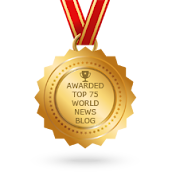Tuesday, March 19, 2019
Ukraine's New Laws Will Only Escalate The Current Ethnic Conflict
Elise Giuliano, Foreign Affairs: Is the Risk of Ethnic Conflict Growing in Ukraine?
New Laws Could Create Dangerous Divisions
The Ukrainian presidential election is only weeks away, and its outcome is highly uncertain. President Petro Poroshenko is lagging in the polls behind Volodymyr Zelensky, a television actor whose only political experience consists of playing the president of Ukraine in a sitcom. The country will head to the polls while still at war in its eastern region of Donbas, where in 2014, local separatists forcibly seized government buildings and declared people’s republics in the cities of Donetsk and Luhansk. Since then, the conflict has taken on elements of both a civil war and an interstate conflict, with Russia arming separatist combatants and sponsoring the breakaway regions. Violence is muted but steady: the number of deaths recently reached 13,000, one-quarter of them civilian.
Unsurprisingly, Ukraine’s leading presidential candidates are all running on platforms resisting Russia. The choice is logical given popular anger over President Vladimir Putin’s 2014 annexation of Crimea and continued interference in Donbas. But Poroshenko differs from other candidates in that he couches his anti-Russian message in a national identity incorporating elements of Ukrainian ethnicity. Whereas his campaign slogan in 2014 was “A New Way of Living,” his current slogan is “Army! Language! Faith!”
Read more ....
WNU Editor: Kudos to Foreign Policy for warning what I have been warning about for a long time. Ukrainian laws and policies that discriminate against the Russian-Ukrainian population is the source of the conflict in Ukraine today. Banning Russian in schools, prohibiting Russian-Ukrainians from government and public jobs, and being told that government services will only be provided in Ukrainian .... all of this is a festering issue for many Russian-Ukrainians. But the new laws that President Poroshenko is advocating for is only going to make a bad situation worse, and developments like this one is only going to guarantee a Russian-Ukrainian backlash .... Neo-Nazis and the Far Right Are On the March in Ukraine (The Nation).
Subscribe to:
Post Comments (Atom)



3 comments:
Anon,
I am talking about Russian-Ukrainians. Russian-Ukrainians have been a part of Ukraine forever.
I often dissent with WNU in its commentary on Ukraine, but I feel he is right here.
There are both Russian speaking Ukrainians, and Russian Ukrainians in Ukraine. Both are equal citizens with Ukrainian speaking Ukrainians. The language issue is a very sensitive one in Ukraine, with both sides at some point attempting to put their native language in a favored position. Over time, as independence continued, the Ukrainian language became increasingly used. In the nineties, it was not unusual for a national politician in Ukraine to not even speak the Ukrainian language. As time went by, more people began using it especially in public. But the Russian language still remains a public one in the east, and still used at home.
The status of minority language users is found in many countries, and is always sensitive. This should be treated cautiously and with respect. Over time, more of the Russian speakers will gravitate to Ukrainian anyway. It's what has happened for the past 30 years, and it has accelerated since the Maidan. But forcing people to use a different language is always seen as a provocation. A softer approach should be used.
or, as in the U.S., no language required. No law stating a national language. Oddly, though, many get angry when they hear someone NOT speaking English, believing it is our national and natural language. It is not.
Post a Comment